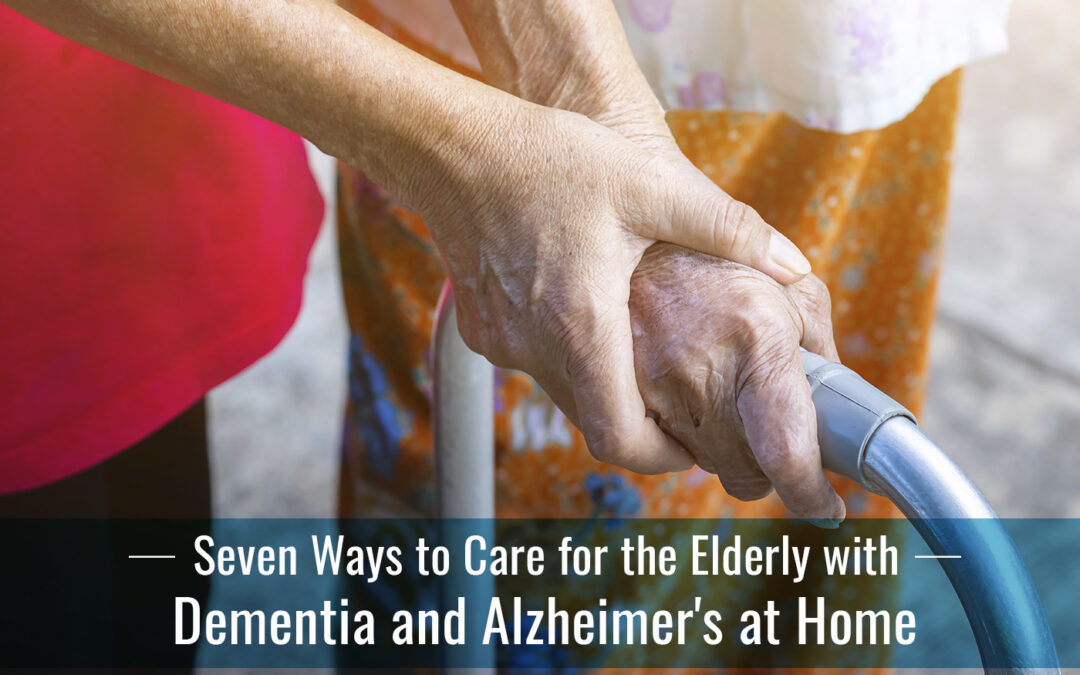Caring for ageing parents gives us a sense of peace and It can be challenging with age-related issues, especially Dementia.
While Dementia is not a disease, it is the diminishing ability of the person to remember, think, or make decisions that interfere with everyday activities. The condition progresses with time with an increased need for proper (generally professional) care and assistance.
Here are few ways to take care of elders with Dementia or Alzheimer’s at home:
Consult a specialist:
The first step is to make an appointment with your doctor. Different types of Dementia have different treatments. You can help the doctor by being prepared with a list of symptoms, when they began, and how frequently they occur. Find out about the treatment options and try to get as much information as possible.
Do your Research:
Caring for someone with Dementia is tricky, especially when you need to do it at home. Researching about the subject and learning about at-home care options is essential.
It doesn’t come naturally to people without a professional caregiving experience. It’s essential to learn about the illness and its progressions from the consulting doctor and physician and ask for advice on caregiving. Be ready to face challenges and know when to seek help from experts.
Changing Physical Needs:
With the progressing of the condition, we may need to focus on their changing needs—difficulty performing routine tasks like brushing teeth, having a bath, or wearing clothes by themselves.
Look out for signs and try to help them after consulting a specialist. Don’t leave a person with Dementia unattended in the bathroom. If possible, remove the locks or ensure that you can open the door from outside. Layout the bath things beforehand to avoid stressing them. If you assist the person in having a bath, draw the bathwater first. Purchase easy to wear breathable clothes that make them feel comfortable.
Make Living Spaces Safe:
When a person progresses through stages of Dementia, some may have issues of balance and their risk of falling increases. It’s better to declutter your home and remove unnecessary things from the living space. Improve the lighting, especially in the pathways. Make your house a fall free zone and give your loved ones the comfort and safety they need.
Communicate to be understood:
While the symptoms vary from person to person, it usually affects memory and attention. Try to keep the noise levels low, and before speaking, try to get their attention. Address the person by name, or identify yourself by name and relation. Maintain eye level while speaking and use gestures and touch. Speak slowly, clearly, and use a reassuring tone. Refrain from raising your voice; instead, try to rephrase your question. Be patient.
Keep a watchful eye:
People with Dementia tend to wander; it could be due to boredom or to look for water, food or the toilet.
Consider installing a home security system or digital devices that can track a person’s whereabouts or locate them if they wander. Also, have them wear some identification or sew it onto their garments. Keep your neighbours informed about the health issue and request them to alert you. Make sure they have your phone number.
Seek Outside Help:
On most days, you might feel you have the situation under control, but on days you feel out of control is when it is good to have specialist services. Home care services can prove to be very helpful to you for dividing responsibilities and help deal with stress better, and these services are designed to support the family.
On days when you are preoccupied with some other essential tasks or feeling caregiver burnout, then you can opt for respite care in your absence, where a caregiver will take care of your loved one until you are back.
At KITES Senior Care Dementia and Alzheimers centre, we run memory clinics where we assess and create care plans for patients with Dementia that support the caregivers and help them understand effective ways of handling elders with Dementia at home. We also run daycare centres where experts trained in caring for patients with Dementia engage with them.
While this is not an exhaustible list, we hope these tips prove valuable to you on this journey filled with ups and downs. It won’t be easy, but it will affect significantly your loved one being at home.
If you need help caring for a loved one with Dementia at home, Kites Senior Care offers In-Home Dementia and Alzheimer Care. Contact Us at +91 99800 67000 or visit kitesseniorcare.com for more details.

